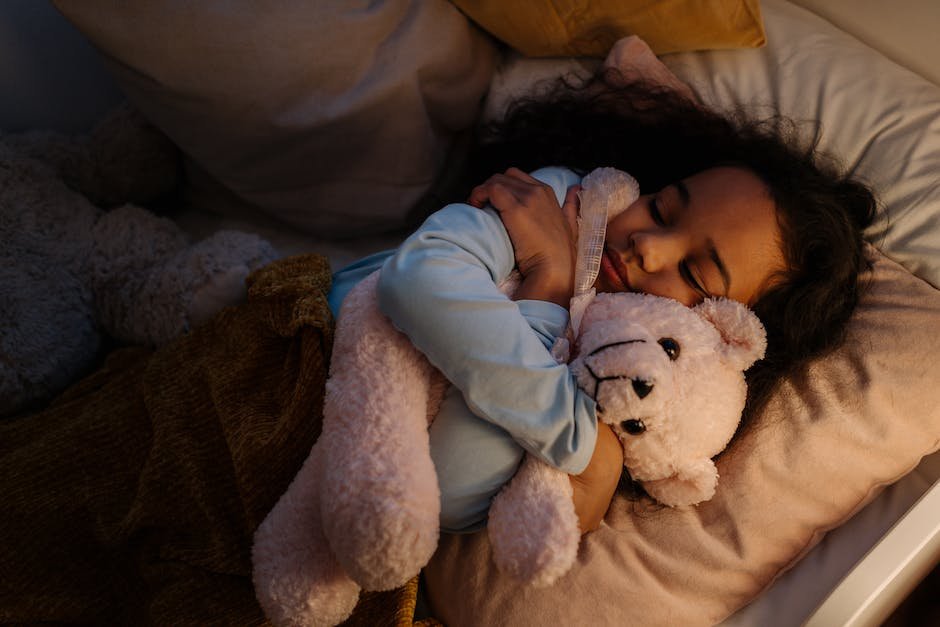
Many individuals with Autism Spectrum Disorder (ASD) frequently encounter sleep disturbances, a challenging problem that needs to be addressed for their overall health and wellbeing. This can be attributed to a number of factors including abnormal circadian rhythms, anxiety, and heightened sensitivity to environmental stimuli. Through understanding the basics of sleep biology and exploring the relationship between sleep disorders and autism, caregivers can glean significant insights into addressing these issues. Concurrently, by utilizing practical, holistic strategies – such as establishing a consistent sleep routine, creating more sleep-friendly environments, and incorporating calming pre-bedtime activities – parents can promote healthier sleep patterns in their children. However, there are circumstances where these at-home adaptations may not adequately address the sleep issues faced by individuals with autism, signaling the need for professional intervention.
Understanding Sleep Problems in Individuals with Autism
Understanding Unique Sleep Challenges in Children with Autism
When traversing the complex landscape of parenting, the importance of good sleep for our children cannot be overstated. Countless studies underline how quality sleep fosters creativity, boosts attention span, and significantly aids in physical growth and development. But what about children who reside on the Autism spectrum? Though each child is unique, many of those with Autism Spectrum Disorder (ASD) often encounter specific challenges when it comes to sleeping.
Let’s delve into the reasons behind these sleep issues, their implications, and possible approaches to help our children sleep soundly and wake up refreshed. Understanding these underlying factors can play a vital role in creating a nourishing sleep environment for our little stars with autism.
Firstly, let’s underline the fact that children with autism often have altered sleep-wake cycles or Circadian Rhythm Sleep Disorders (CRSD). Simply put, their internal biological clock doesn’t “tick” the way we’d expect it to. They may feel energetic late in the evening and fatigued in the early morning. This fragmented sleep pattern could contribute to daytime sleepiness and play a role in the behavioral challenges they face.
Secondly, studies suggest that kids on the spectrum may generate less melatonin – the hormone that tells our body it’s time to sleep. This deficiency could lead to difficulty falling asleep or maintaining a deep sleep. When combined with the altered sleep-wake cycles, it’s easy to see why improved sleep hygiene isn’t simply a matter of setting an earlier bedtime.
Research has also indicated a higher prevalence of anxiety and sensory sensitivities in children with autism. These conditions have an impact on their ability to fall asleep or stay asleep. From the humming noise of the refrigerator to the feel of a new type of fabric, these seemingly small things can induce significant discomfort, making it difficult for them to relax and drift off to sleep.
Another issue that doesn’t always make the headlines but certainly deserves our attention is the effect of gastrointestinal problems that are relatively common in children with autism. Digestive discomfort can cause restless nights and frequent awakenings.
Understanding these unique challenges is the first step towards helping our children with autism achieve better sleep patterns. Addressing issues such as environmental discomforts, or exploring whether a melatonin supplement is a good option, can pave the way for more consistent and restful sleep. Medical professionals who specialize in ASD can provide guidelines tailored to each child’s specific needs.
While handling these challenges might seem overwhelming, remember, you’re not alone on this journey. There’s a whole network of parents, healthcare professionals, and sleep specialists eager to support, guide, and share their wisdom. Let’s continue the nurturing work of creating the most enriching environments for all of our children, celebrating their strengths while understanding their struggles. The path might be a little bumpy, but together, good night’s rest for every child can be within reach. And don’t forget: every small success in our kid’s sleep routine is a step towards the overall well-being of our entire family.

Practical Strategies to Improve Sleep in Autistic Kids
Heading: More Tips to Enhance Sleep Quality for Kids with Autism
Every parent is a superhero, but if you're the parent of an autistic child, your responsibilities double up. It's not easy, but with love, care, and patience, every day brings its share of accomplishments. Among the common challenges faced is helping your autistic child sleep better, an issue we've already touched upon to some extent. Let's further expand with some more ideas and tactics to tackle this issue.
#1 Cognitive Behavioral Therapy (CBT):
Cognitive Behavioral Therapy can be a game-changer for autistic children struggling to get restful sleep. This therapy equips them with tools to manage their anxieties and fears, often linked to sleep disturbances. Additionally, it can help address potential nightmares that might be hindering their sleep. Collaborate with a specialist to personalize an effective CBT plan suitable for your child.
#2 Structured Bedtime Routine:
It's essential to create a consistent bedtime routine, as familiarity breeds comfort. This could include relaxing activities like warm baths, bedtime stories, or soothing music. The trick is to identify and implement what works best for your child, keeping in mind their specific interests and likes.
#3 Dietary Considerations:
Do not underestimate the role diet plays in improving sleep quality. Certain foods can disrupt sleep cycles and aggravate gastrointestinal issues. You may want to consult a dietitian to help establish a food plan that reduces sugar and caffeine intake and includes foods rich in tryptophan, magnesium, and calcium, which are known to aid sleep.
#4 Sensory Tools:
The use of sensory tools can enhance sleep by calming the senses. Weighted blankets or deep pressure vests can mimic a comforting hug, which is soothing for many children. Some children might respond well to white noise machines or soft, low-playing music that helps to drown out other, potentially disturbing noises.
#5 Incorporate Physical Activities:
Research suggests that moderate physical exercise can significantly improve an autistic child's sleep quality. Regular, structured activities like swimming, walking, or dancing can help tire your young one out, making it easier for them to fall asleep at night.
As previously mentioned, parenting an autistic child is demanding but rewarding in equal measures. Balancing patience with science, understanding with discipline, and love with structure can transform your child's sleep experience and yours too. Consult professionals, other parents, and constantly engage in learning more; all while keeping a heart full of empathy and a pocket full of patience. And remember, every small step is a victory worth celebrating in this beautiful journey called parenthood.

Professional Intervention for Sleep Problems in Autism
The Right Time and Methods for Seeking Medical Intervention for Sleep Problems in Autistic Kids
Knowing when and how to seek professional medical help for your autistic child’s sleep problems can feel intimidating. Yet, understanding this crucial aspect supports the overall wellbeing and development of your child.
Despite implementing healthy sleep strategies like regular nap routines, physical activities, dietary modifications, and cognitive behavioral therapy, a significant improvement may still elude some kids. In such cases, it might be wise to consider professional medical intervention, assisting you and your child towards healthier sleep habits.
When it comes to recognizing when to seek medical intervention, look out for the persistence and escalation of sleep problems. While it’s common for children on the spectrum to experience occasional sleep disturbances, continuous sleep troubles warrant attention. If your child’s lack of sleep starts affecting daytime behavior, cognitive function, school performance, or overall mood, it may signal a need for professional intervention.
Delayed sleep phase or chronic insomnia, for example, might also suggest that it’s time to seek medical advice. Similarly, irregular sleep-wake patterns, frequent night waking, unusual behaviors during sleep, or symptoms suggesting sleep apnea may require specialized help.
Once you decide to seek medical intervention for your child’s sleep problems, it’s vital to approach the right professionals. Pediatricians often serve as the first point of contact. They can guide parents towards appropriate sleep clinics or specialists, including neurologists, pulmonologists, and child psychologists.
A thorough sleep evaluation is usually the initial step in the intervention process. It involves reviewing the child’s medical history, sleep habits, and conducting a physical examination. Some cases might demand a sleep study or polysomnography to diagnose conditions like sleep apnea. These assessments grant the doctors a comprehensive understanding of your child’s sleep disruptions and the best course of treatment.
Treatment options often depend on the identified causes. A sleep specialist might refer to medication, therapies, or both in tandem, to help manage and improve your child’s sleep. Non-pharmacological interventions may include sleep training techniques like fading or positive routines. For children struggling with anxiety-related sleep problems, cognitive-behavioral therapy (CBT) might be recommended.
Medications, although used cautiously in pediatric cases, may be considered, especially when non-medication strategies aren’t sufficiently effective. Do remember that these will always be tailored to your child’s specific needs and sensitivities, considering the possible interactions with their existing medications.
Professional medical intervention for sleep issues in autistic kids is a partnership between families and healthcare professionals. Its ultimate aim is to enhance the child’s sleep quality, thus improving their daytime functioning and overall quality of life. Remember, each child is unique, and what works for one might not work for another. Thus, patience, constant tweaking, and experimentation under professional guidance remain essential throughout this journey.

Regardless of the severity of sleep problems encountered by individuals with autism, it is important to remember that there’s always a path toward improvement and potential solutions to these challenges. A balanced blend of understanding the nature of sleep issues, applying practical strategies at home, and seeking professional help when necessary can significantly alleviate sleep disorders in this population. It’s a strategic process that requires a fair blend of openness, patience, learning, and acceptance. In essence, helping your child to sleep better is not merely a favor, but a fundamental requirement that boosts their overall wellness, development, and quality of life.




